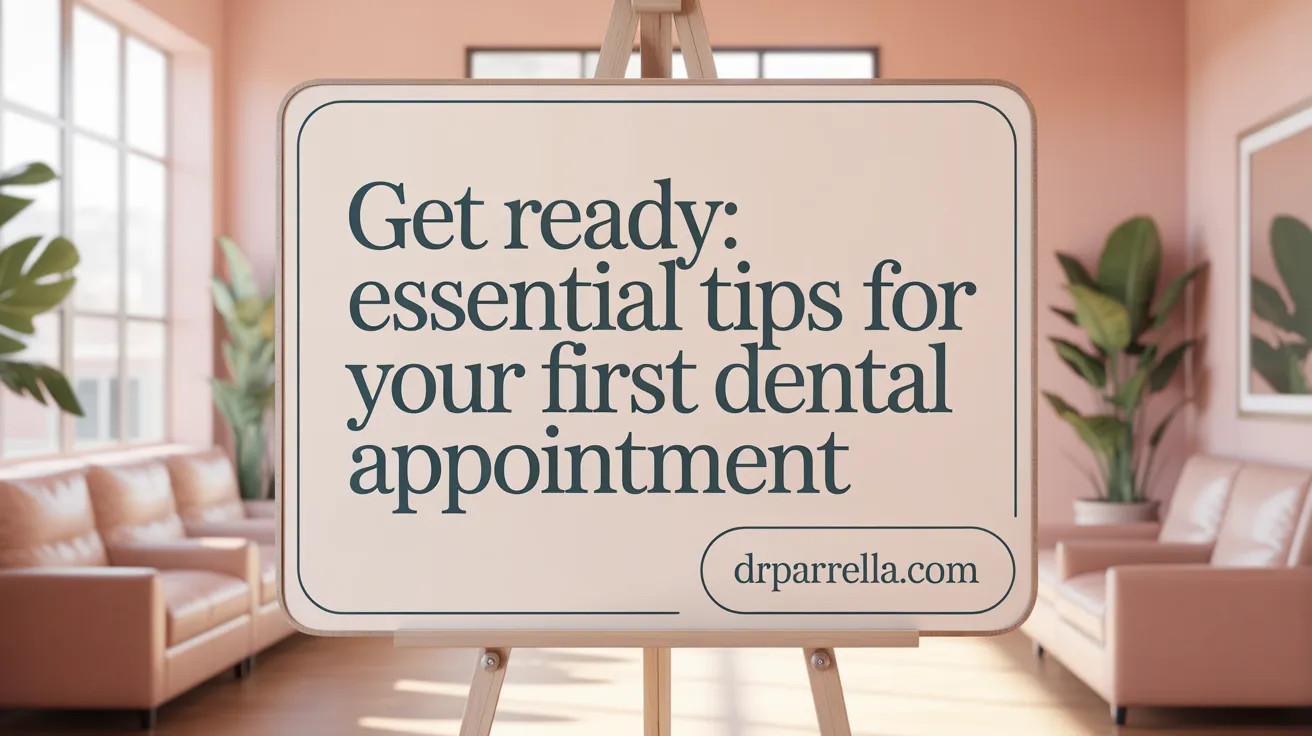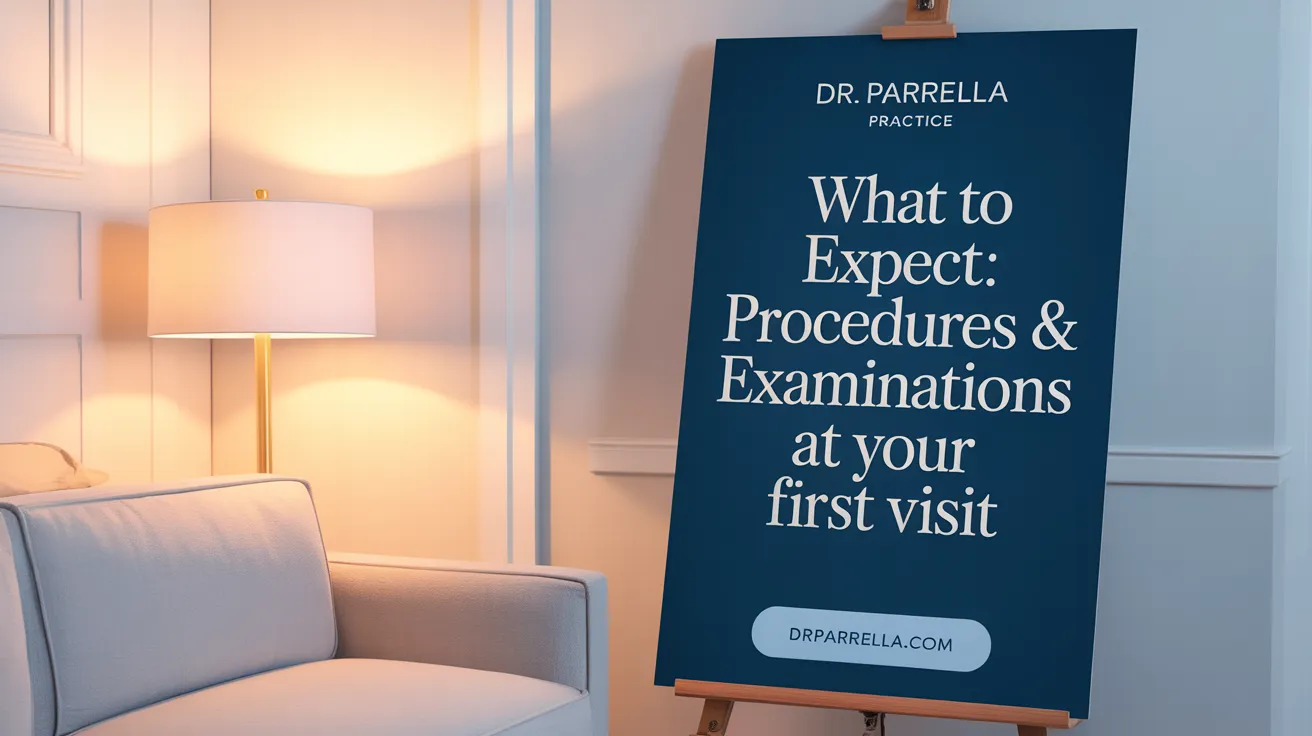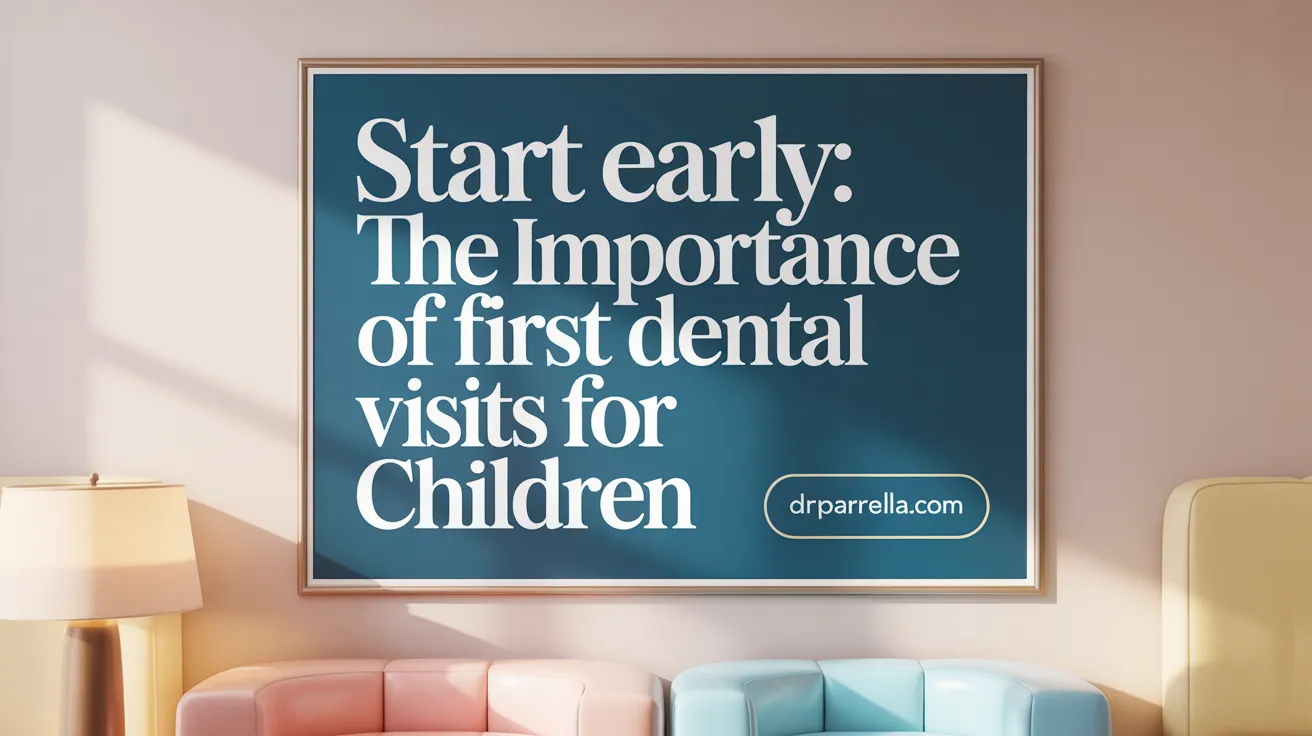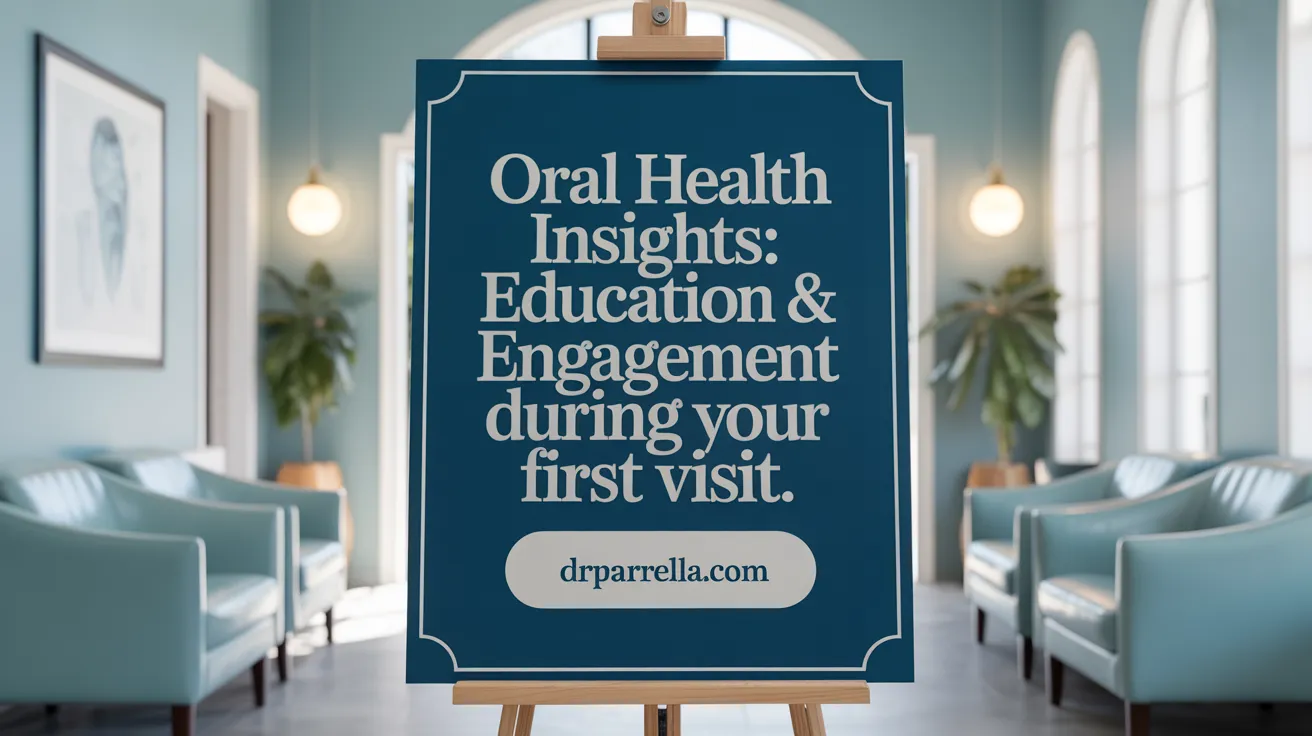Starting Your Journey to Lifelong Oral Health
Your first dental appointment can set the foundation for a positive and lasting relationship with your dental care provider. Whether you are an adult visiting after a long hiatus or preparing your child for their inaugural dental experience, understanding what to expect and how to prepare can transform anxiety into confidence. This comprehensive guide will navigate you through the essential steps of scheduling, preparing, and successfully completing your initial dental visit, focusing on creating a welcoming experience and empowering you with oral health knowledge.
Preparing for Your First Dental Appointment: Essential Tips for New Patients and Parents
 Getting ready for your first dental appointment can feel overwhelming, but a few simple steps can make the experience smoother and more comfortable.
Getting ready for your first dental appointment can feel overwhelming, but a few simple steps can make the experience smoother and more comfortable.
First, gather all relevant medical and dental history. This includes listing current medications, any known allergies, past dental treatments, and any specific concerns you want to discuss. Writing down questions in advance can help you remember to ask about treatment options, costs, and care instructions (New Patient Dental Visit Guide, 5 Questions Every New Patient Should Ask Their Dentist).
Practicing good oral hygiene before your visit is also beneficial. Brushing and flossing your teeth thoroughly on the day of the appointment helps reduce plaque and bacteria, contributing to a healthier mouth. However, avoid aggressive brushing or using harsh products immediately before your visit to prevent gum irritation (Oral hygiene practices).
Confirm the appointment details ahead of time. Arriving early, ideally 10 to 15 minutes, allows extra time to complete any necessary paperwork and relax before your exam. Remember to bring your insurance information, medical records if needed, and any relevant dental records from previous providers (Preparing for your first dental appointment, Your first appointment at a new dental office: What to expect).
For added comfort, consider bringing items that help reduce anxiety, such as a stress ball, headphones, or a comforting object. This is especially helpful if you feel nervous or if it’s your first time at a new office (Managing dental anxiety, Preparing for a dental appointment – Tips from a dentist).
If you're booking for your child, parental preparation is crucial. Talk positively about the visit, read children’s books about dental care, and role-play dental visits to familiarize your child with what to expect. Scheduling the appointment at a time when your child is well-rested and not hungry can also make the experience more pleasant (Preparing Your Child for Their First Dentist Visit, Child's First Dental Visit).
Finally, communicate openly with your dental team. Let them know if you have dental fears or if it’s been a long time since your last visit. Clear communication helps the dentist tailor the experience to your needs and ensures you leave with a clear understanding of your treatment plan (The Importance of Sharing Information with Your Dentist as a New Patient, First Visit to a New Dentist: A Guide).
By following these straightforward tips, your first dental appointment can become an opportunity for a positive start toward maintaining healthy teeth and gums for years to come (The Patient's First Visit, What to Expect at Your First Dental Appointment).
What to Expect During Your First Dental Visit: Procedures and Examinations

Check-in and paperwork process
When arriving for your first dental appointment, the check-in process begins with greeting by staff members who verify your appointment details. You'll be asked to complete new patient forms that include your personal information, medical and dental history, and insurance details. To save time, many practices now offer online forms that can be filled out before your visit.
Comprehensive oral exam and medical history review
The dentist conducts a thorough oral examination, assessing the health of your teeth, gums, and oral tissues. This includes a visual inspection for signs of decay, gum disease, or other oral health issues. During this exam, your medical and dental history is reviewed to understand any underlying health conditions that could affect your dental care.
Digital X-rays and low radiation safety
Digital X-rays are commonly used because they emit very low levels of radiation, making them safer than traditional X-rays. These images provide detailed views of your teeth, roots, jawbone, and sinuses, helping to identify problems not visible to the naked eye, such as hidden cavities or bone deterioration. Usually, X-rays are taken early in the visit to guide diagnosis and treatment planning.
Oral cancer and periodontal screenings
Part of the initial exam includes screening for oral cancer, which involves inspecting the mouth, throat, and tongue for suspicious lumps or lesions. The dentist also evaluates gum health through a periodontal exam, which may include measuring gum pocket depths around teeth to detect gum disease early.
Timing and role of professional cleaning
A professional cleaning, with removal of plaque and tartar, helps to maintain oral health and prevent disease. Depending on your individual needs, the hygienist may perform this cleaning during the first visit or schedule it as a subsequent appointment. The cleaning includes polishing your teeth and applying fluoride when appropriate.
Personalized treatment planning
After completing examinations and diagnostics, the dentist discusses findings with you and develops a personalized treatment plan tailored to your oral health needs. This plan may include checklist items for further treatments or preventive measures, and it sets the foundation for your ongoing dental care.
Discussion of insurance and payment options
Before concluding your appointment, the staff will review your insurance coverage and payment options. They will assist in scheduling future appointments and can provide information about financing plans if needed.
Understanding what to expect during your initial visit ensures you feel prepared and comfortable, setting the stage for effective lifelong oral health management.
Managing Dental Anxiety and Creating a Positive Experience
 Understanding dental fear and anxiety is essential for ensuring a comfortable first visit, especially for children or patients with previous negative experiences. Many patients feel nervous about unfamiliar environments, dental procedures, or the potential discomfort involved.
Understanding dental fear and anxiety is essential for ensuring a comfortable first visit, especially for children or patients with previous negative experiences. Many patients feel nervous about unfamiliar environments, dental procedures, or the potential discomfort involved.
Building trust with dental staff can significantly reduce anxiety. Staff should greet patients warmly, use their names, and communicate clearly to ease apprehensions. Explaining each step of the visit and listening to patient concerns helps foster confidence and a sense of safety (The Patient's First Visit).
Several techniques are effective in managing dental anxiety. The 'tell-show-do' method involves explaining procedures in simple terms, demonstrating what will happen, and then performing the treatment, making the experience predictable for the patient. Relaxation methods such as deep breathing exercises, progressive muscle relaxation, or guided imagery help reduce physical tension (Managing dental anxiety).
Creating a calming environment within the office can also ease stress. Soothing background music, pleasant scents, and the use of distraction items like headphones, videos, or stress balls make visits more comfortable. For children, colorful decor, toys, and friendly staff help cultivate a relaxed atmosphere (Positive first experience, Preparing Your Child for Their First Dentist Visit).
Parents play a vital role in preparing children for their dental visit. Positive talking about the appointment, reading children’s books about visiting the dentist, and role-playing dental scenarios can demystify the experience. Ensuring children arrive well-rested and not hungry also helps them stay calm (Preparing Your Child for Their First Dentist Visit, How to Prepare Your Child for Their First Dental Visit).
For highly anxious patients, behavioral management techniques or sedation options might be recommended. These approaches, used under professional supervision, can help patients remain still and relaxed during treatment, transforming a potentially stressful experience into a positive one (Managing dental anxiety).
In summary, understanding dental anxiety, effective communication, calming techniques, and supportive environment adaptations are all crucial in managing first-time dental patient fears and fostering a positive healthcare relationship (Patient's First Visit, Comfort-focused dental visits).
The Importance of Early Dental Visits for Children and How to Prepare Them

Why are early dental visits important for children, and how can parents best prepare their children for these appointments?
Early dental visits are fundamental in establishing a dental home for children, ideally by their first birthday or within six months after their first tooth erupts. These initial visits serve multiple vital purposes. They help prevent tooth decay and identify potential issues early, which can be easier and less costly to treat when caught early. Additionally, early visits allow dentists to monitor the development of baby teeth and provide guidance on proper oral hygiene practices, nutrition, and habits like thumb-sucking or pacifier use (Importance of Early Dental Visits, Your Baby's First Dental Visit).
Parents play a crucial role in preparing their children for a positive experience. Engaging in positive conversations about the visit, reading children’s books about visiting the dentist, or role-playing using toy dental kits can help demystify the process (How to Prepare Your Child for Their First Dental Visit, 10 Ways to Prepare Your Child for Their First Dental Visit). Choosing a pediatric dentist trained to handle young children ensures gentle care tailored to a child's needs (Choosing the Right Pediatric Dentist). It’s also helpful to schedule appointments at a time when the child is relaxed, well-rested, and not hungry, to make the experience as comfortable as possible (Scheduling Comfortable Appointments).
Using reassuring language and explaining that the dentist’s tools are gentle helps alleviate fear (Preparing Your Child for Their First Dentist Visit). Bringing comfort items like a favorite toy or blanket can further decrease anxiety. Parents should remain calm and positive, as children often pick up on parents’ emotions. Regular early visits not only promote healthier teeth but also foster a lifelong positive attitude toward dental health, reducing dental fears and encouraging routines that last a lifetime (Preparing Your Child for Their First Dental Visit, Child’s First Dental Visit Guidelines).
Overall, conducting early dental visits supports early intervention, educates parents, and helps children develop good oral hygiene habits, laying the foundation for a healthy smile long into adulthood (First Dental Visit Recommendations, Importance of Early Dental Visits for Children).
Choosing Your Dentist and Navigating Initial Appointments
What factors should new patients consider when choosing a dentist and scheduling their initial appointments?
Selecting the right dentist involves evaluating several important aspects to ensure a positive experience. First, consider the dentist’s credentials, experience, and specialization, especially if you need specific treatments like orthodontics or pediatric dentistry. Reading online reviews and patient testimonials can provide insight into their reputation and quality of care (Choosing the right dental provider, Choosing a pediatric dentist).
Location and office hours are also crucial. Choosing a practice close to home or work with flexible scheduling options makes it easier to maintain regular visits. Many offices offer online booking, which adds convenience (Convenient dental appointment times).
Insurance compatibility is essential; confirm whether the practice accepts your dental insurance to avoid unexpected costs. Transparency about costs, payment plans, and financing options like CareCredit or wellness plans helps in planning financially (Insurance and cost discussion, Dental financing options).
Office environment and staff professionalism contribute greatly to comfort. Modern clinics equipped with up-to-date technology, such as digital X-rays and intraoral cameras, can enhance diagnosis and treatment quality (Modern dental technology, Patient ease strategies).
Before scheduling, prepare a list of questions about procedures, office policies, and early visit expectations. Understanding what to anticipate during your first appointment can build confidence and establish a trusting relationship with your new dental team (Preparing questions for dentist, What to expect at your first dental appointment).
Oral Health Education and Patient Engagement During the First Visit

What oral health education should new patients receive regarding hygiene practices and preventive care during their initial dental visit?
During an initial dental appointment, patients should be thoroughly educated on essential oral hygiene habits to set the foundation for lifelong dental health. This includes demonstrating proper brushing techniques—using fluoride toothpaste, angling the brush toward the gumline, gently circular motions, and covering all sides of each tooth (oral hygiene practices).
Flossing or using interdental tools is also emphasized to remove plaque and food debris from between teeth, especially in hard-to-reach areas. Patients should understand that controlling dental plaque, a sticky film of bacteria, is crucial in preventing cavities and gum disease (preventive care tips).
Education extends to dietary habits, highlighting how sugars and acidic foods contribute to tooth decay, and explaining the importance of limiting sugary snacks and beverages (diet and oral health). The role of fluoride, whether in toothpaste or through professional treatments, is stressed for strengthening enamel (fluoride treatments at dentist).
Practitioners often use visual aids like models or diagrams to demonstrate cleaning techniques and improve patient comprehension (using dental models and diagrams). Tailored advice considers individual risks or existing conditions, fostering motivation for consistent home care (personalized dental treatment plan).
In addition, explaining routine preventive measures, such as regular professional cleanings, oral cancer screenings, and early detection of issues, helps patients appreciate the value of routine check-ups (comprehensive dental exam overview). Encouraging questions and involving patients in discussions builds trust and empowers them to take control of their dental health (improving patient-dentist communication).
Creating a welcoming environment where patients feel comfortable asking about their concerns is vital in ensuring they leave with clear knowledge and motivation to maintain good oral hygiene habits (friendly patient welcome). This collaborative approach not only improves compliance but also helps establish a long-term relationship between the patient and the dental team (long-term patient relationships).
Building a Healthy Relationship with Your Dentist
A successful first dental visit is more than an appointment — it's the beginning of a partnership focused on your lifelong oral health. By preparing thoroughly, understanding what to expect, and openly communicating with your dental team, you empower yourself to overcome anxiety and embrace quality care. Early dental visits, especially for children, set the stage for healthy habits and positive attitudes towards dental care. Choosing the right dental practice that prioritizes welcoming, patient-centered service makes all the difference in transforming appointments into comfortable and confident experiences. Remember, your dentist is a partner in maintaining your smile’s health and vitality — establishing this trust from the start encourages regular checkups and preventive care for years to come.
